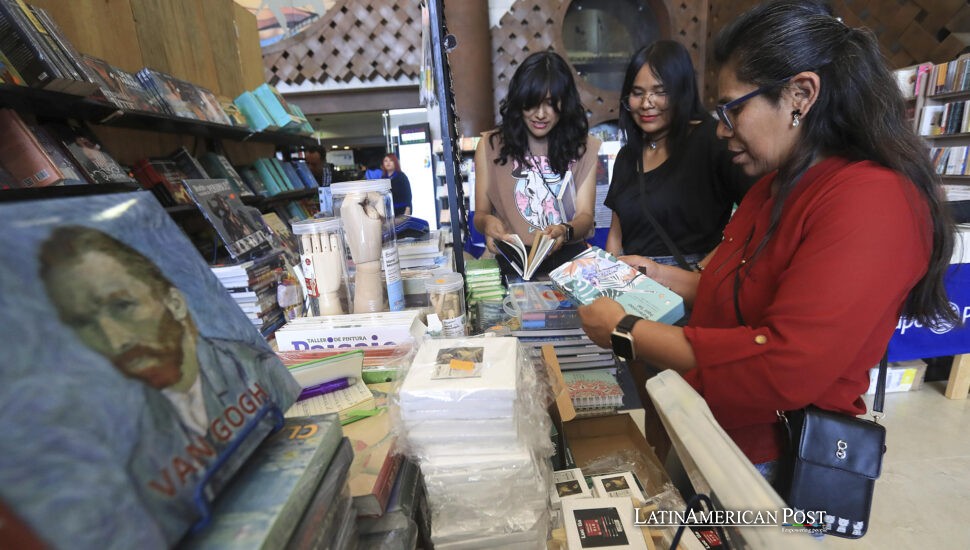Latin American Publishers Unveil Secrets for Aspiring Novelists

A swirl of creative ambition and market realities shapes Latin America’s publishing scene. Emerging writers often view big publishers as imposing citadels, yet editors and agents highlight that understanding market demands, refining manuscripts, and forging relationships can open unexpected pathways.
The Evolving Quest for New Voices
For many aspiring storytellers, the publishing world seems distant and forbidding. Yet experts in the industry who spoke with EFE—including Mexican editor Mayra González of Penguin Random House and Colombian literary agent Andrea Montejo—insist that their doors are not barred. They encourage novices to align their projects with current editorial needs and demonstrate a grasp of shifting literary tastes.
González, a literary director at a big publishing house, saw that the idea of large publishers wanting only known authors was old. She said that important imprints need many new writers. “Editors know the literary conversation must continually renew itself,” she explains. In her view, first-time novelists energize a publisher’s lineup, ensuring fresh viewpoints and dialogues enrich the market year after year.
Montejo, the founder of the New York-based agency Indent, expresses a similarly optimistic perspective. She enjoys working from the start. She makes her first literary appearance. Then, she slowly builds a promising career. “Nothing excites me more,” she tells EFE. She describes how she helps beginners improve their manuscripts – she assists them in contract talks. She helps them meet different publishers. The reward, she states, is watching an unheralded person become a known writer.
Stepping Through the Publishing Gate
Delivering a submission to a publisher or agent can be daunting, especially given the volume of unsolicited manuscripts. Montejo sees about ten new proposals daily—too many to grant each extensive consideration. Some hopefuls send children’s fantasy to a nonfiction agent or present a murder mystery to an imprint that only handles poetry. According to her, these mismatches indicate a lack of awareness about each publisher’s or agent’s niche. “It’s so important,” she notes, “for authors to understand the industry, to see what kind of books we champion.”
González underscores how contests and workshops can help new authors bypass the scramble for attention. She highlights that many publishers keep an eye on literary prizes, even scanning entries that do not win. A judge or a reading committee’s recommendation might yield a contract, circumventing the usual slush pile. In parallel, González values literary workshops hosted by notable instructors. “These professionals have credibility,” she says, “and can point us to intriguing manuscripts that might otherwise remain hidden.”
Time stands still for an unknown writer while waiting for a reply. Yet Montejo reminds everyone that editors juggle tasks like drafting marketing plans, finalizing covers, or polishing final proofs. “Reviewing fresh submissions can feel like a luxury,” she admits, urging authors to practice patience and empathy for those receiving hundreds of inquiries.
Advice for Aspiring Authors
Few experiences match the intensity and vulnerability of sending out a labor-of-love manuscript. Montejo says, “Writing’s the hardest job in the world.” But once that manuscript exists, the journey toward publication requires a strategic approach. Understanding which agencies handle what genres, reading an imprint’s backlist, and researching competition allow authors to tailor their queries. Scattershot mass emailing might backfire. Montejo says it is about “being selective and respectful of how this industry functions.”
González encourages upcoming writers to consider open calls for literary prizes. The final victor may grab headlines, but plenty of other remarkable works catch the eye of readers and judges. She points out that competitions often reflect evolving market appetites—styles or themes that resonate with professionals who evaluate the entries. Being placed on a contest shortlist may spark conversations, forging an initial link to an editor’s desk.
From Montejo’s view, forming ties matters, too. She sees that many new authors link up through social networks, at conferences, or at festivals such as Centroamérica Cuenta—she and González spoke at that festival. Writers who participate in these gatherings exchange contacts, build confidence, and sustain one another during the unpredictable stages of rewriting and waiting. “An important part of wanting to be an author is supporting others, too,” she notes.
Building Community and Fostering Growth
From Mexico City to Bogotá and beyond, the thriving environment of creative workshops, reading circles, and even small boutique presses reveals a Latin American market hungry for stories that mirror its many cultures. This momentum benefits major players like Penguin Random House, who always seek authors with distinctive voices. González thinks that even when a new writer misses a quick agreement, honest work with other writers provides essential ideas. She states that her company seeks ambitious storytellers. However, people who write must accept feedback, editing, and shared work on a career, not just a book.
Ultimately, publishing remains a collective enterprise.
ontejo emphasizes that, behind the scenes, multiple teams—editors, publicists, and rights managers—coordinate to ensure a novel reaches its audience. “It’s never about just one handshake,” she clarifies. “An agent or an editor could open the first door, but success depends on support layers.” That communal spirit and understanding of what resonates in the modern market might help transform an unheralded debut into tomorrow’s sought-after read.
Also Read: Latin America Confronts Data Boom as Tech Giants Devour Water
Yet, the hopeful novelist’s quest often begins with small steps. Submitting to a short story competition, enrolling in a workshop to sharpen your craft, and contacting the right publisher can gradually erode the fortress-like aura of big houses. As Montejo and González convey, many publishing folks share a genuine desire to discover fresh perspectives. Recognizing synergy opens possibilities—reminding novices that, while the gates may seem formidable, they are not locked to those who approach with perseverance and knowledge of the terrain.





